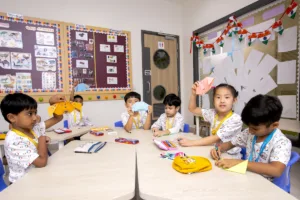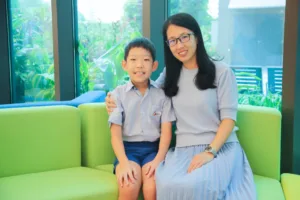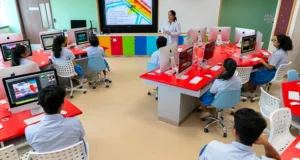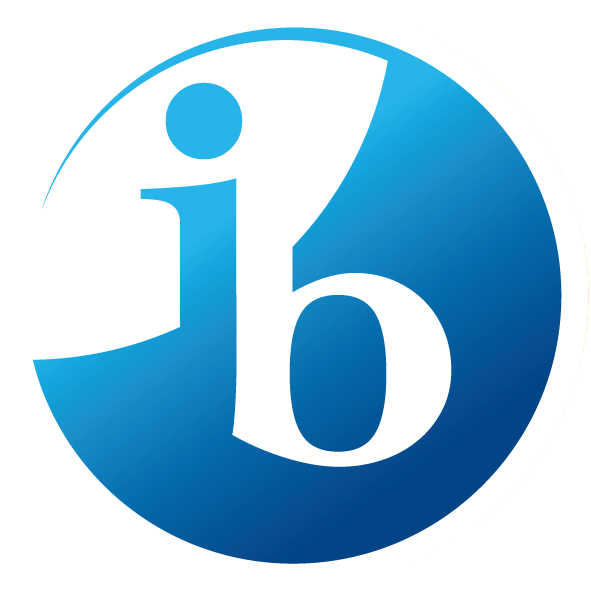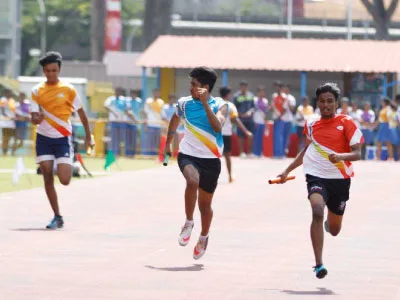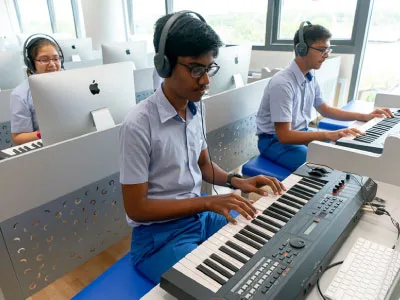Shivani Welling, who scored a perfect 45/45 in the 2020 IB Diploma exams, pursued her journey to success in the face of a global pandemic. She emerged as one of the three world toppers in GIIS’ 2020 Cohort. As someone who loved to participate in sports, debates and public speaking with awards at Model United Nations (MUN) conferences while in school, her love of learning goes beyond books. Here are seven tips from her on what it takes to achieve your dream, even when it’s not a perfectly ‘normal world.’
(This is a summarised version of an interview with Shivani Welling.)

1. Go for multiple modes of learning
Try out audios, videos, and online reading apart from the physical books.
Shivani: “When it comes to studying for exams, you should find out what kind of a learner you are, whether you’re an audio or visual (learner) and make the most of it. I think we’re really blessed to have a plethora of resources at our disposal. For example, if I get bored of reading a textbook, I’d watch a video online. And if I get bored of that, maybe I’ll listen to a crash course on a topic I want to learn more about. That becomes a little more refreshing and exciting for me.”
2. Learn a bit outside of your syllabus
Work towards sustaining your interest and fill the gaps by reading in-depth.
Shivani: “As someone who genuinely likes learning, this is something I do in general. I usually like learning a little bit outside of the syllabus, a bit more in-depth. I think that’s important because it really helps you to get your foundation correct. There might be times when we question, okay, but why does this happen? I think it’s up to the students to really go find out the why (the reason). And that always helps: a little bit more is always better than a little bit less.”

3. Take charge of your own learning
Keep asking, keep looking for the answers. Request your teachers for additional help when needed.
Shivani: “My teachers made a really big difference in my IBDP experience and I’m really grateful to them for that. Especially, when it came to assignments or even preparing for the exams, I was kind of a last-minute person. They were super patient, understanding and gave me that space. I was able to have creative control and could go towards the direction I wanted in all of my assignments. They guided me in every aspect.”
4. Take extracurricular activities that you enjoy
Shivani: “ I look at extracurriculars as stress busters and limited my activities to those that I actually had time for. Also, for me, art and music are cathartic experiences. They don’t fall into that category that gives me stress. I suggest going after those extracurriculars that add value to you as a person. Also, if you really want to pursue one extracurricular activity, make sure you dedicate time to it. ”
5. Manage your time. Don’t leave everything for the last minute
Shivani: “I think time management was a big concern for me because there was always so much going on. I was applying for medicine and there were a lot of things to be done. I felt a lot of pressure that sort of built up because of the assignments and deadlines etc. Looking back, I definitely wish I had spaced out my work a little better and started earlier.“
6. Pay attention in class. It matters
Shivani: “Make sure that when you’re there in the classroom, you’re really there in the classroom because I can’t tell you how much of a difference it makes, just to pay attention in class. It really reduces your workload later.”
7. Manage your stress. Break down your tasks into smaller components
Shivani: “I usually break down tasks into smaller chunks, sort of very basic components. So if I’m writing an exam, or if I’m giving an interview, I just think: what is the actual task? It’s just answering a few questions on a piece of paper, right? Imagine going to someone and saying, ‘Oh, I’m scared of answering a few questions on a piece of paper’. I understand if you’re scared of tigers but you’re scared of a piece of paper that’s asking you a few questions? It sounds really silly. I’m doing it right now spontaneously. So, why can’t I do it on a piece of paper? Right? So just breaking down the task can help a lot.”
If you are looking for more such interesting and easy-to-adopt tips, you can check out our blog on Tips for good University placements. If you wish to know more about the IB Diploma Programme at GIIS, please get in touch with our admissions team.


